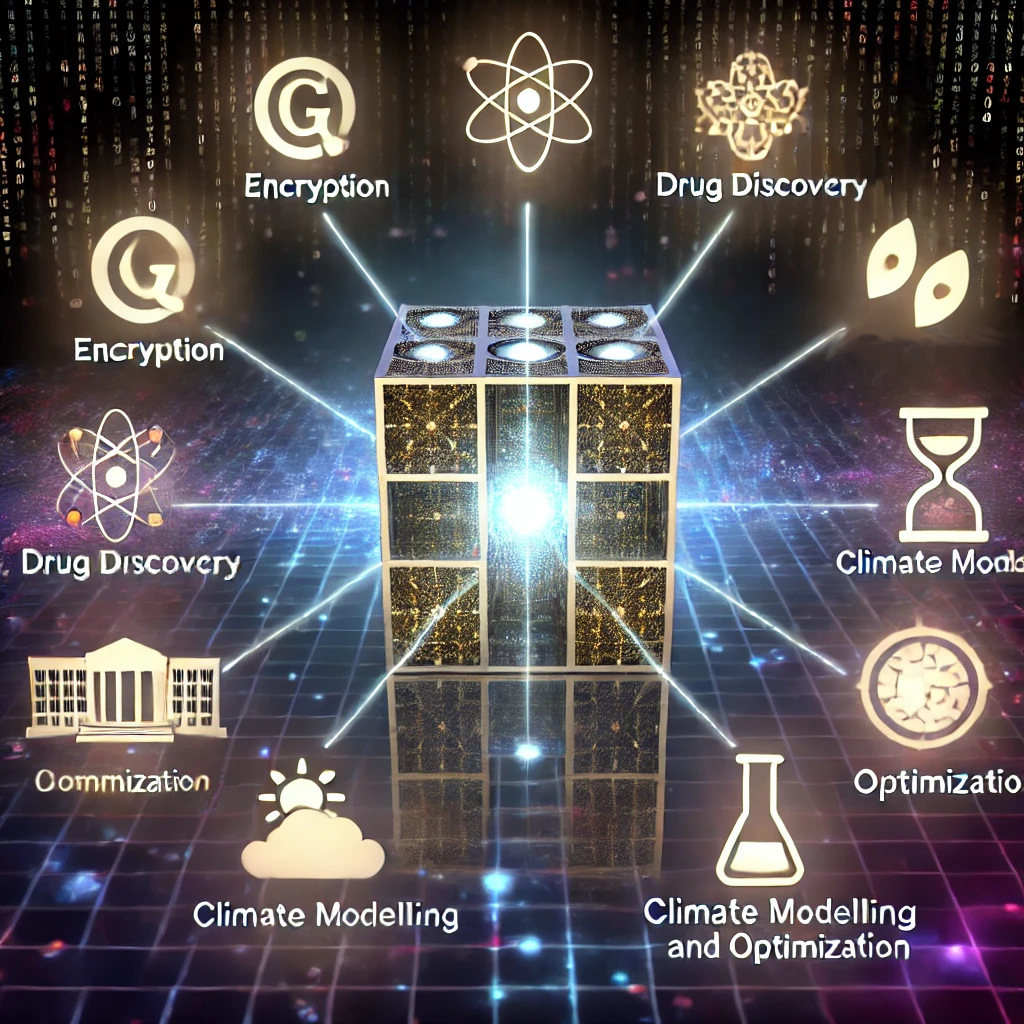What problems do super computers solve?
Article Source: Quantum Computing Solutions

Why You Should Care
Quantum computing is not just a futuristic idea—it's here and changing how we solve complex problems. Unlike regular computers, quantum computers can process information much faster, solving problems that would take traditional computers thousands of years. Understanding where quantum computing shines helps us see its potential to revolutionize various industries.
Answering the Question… What problems do super computers solve?
Quantum computers are especially effective at solving problems involving complex simulations, like modeling molecules for drug discovery or optimizing large systems like supply chains. The study found that quantum computing can solve these types of problems up to 100 million times faster than classical computers. For example, problems that take thousands of years on a traditional computer can be solved in seconds with a quantum computer.
How Was the Study Done?
Researchers compared the performance of quantum computers to classical computers by running a series of complex algorithms. They focused on tasks that are notoriously difficult for classical computers, such as factoring large numbers and simulating molecular structures. The study used both theoretical models and real quantum computers to test the speed and accuracy of solutions.
What Was Discovered?
- Speed Advantage: Quantum computers have a significant speed advantage over classical computers. For example, the study highlighted that quantum computers can factor large numbers exponentially faster. In one case, a quantum computer solved a problem in 200 seconds that would take a classical supercomputer approximately 10,000 years to complete. This illustrates a speed improvement of over 157 million times.
- Complex Problem Solving: Quantum computers excel in solving problems involving quantum simulations, such as modeling molecular structures and chemical reactions. The study found that quantum computers could simulate a molecule with 120 atoms, a task that is practically impossible for classical computers due to the sheer complexity and the number of variables involved. This capability is expected to revolutionize fields like drug discovery, where accurate molecular simulations can lead to faster development of new medications.
- Optimization: Quantum computers are particularly effective at solving optimization problems. The research showed that quantum algorithms could optimize complex systems, such as supply chains and financial portfolios, with greater efficiency. For example, quantum computers could process optimization problems involving up to 1,000 variables simultaneously, something classical computers struggle to handle in a reasonable timeframe.
- Scalability and Data Handling: Quantum algorithms are inherently more scalable than classical algorithms. The study found that quantum computers could manage and analyze datasets involving millions of variables far more efficiently than classical computers. This makes them particularly useful for big data applications in fields like artificial intelligence, where processing large amounts of information quickly and accurately is crucial.
- Error Rates and Practicality: While quantum computing offers tremendous potential, the study also highlighted the challenges of error rates in quantum calculations. The research found that current quantum computers have an error rate of about 1 in 1,000 operations. However, advancements in quantum error correction are expected to reduce this significantly, making quantum computing more practical for real-world applications.
Why Does It Matter?
Quantum computing has the potential to revolutionize fields that rely on solving complex problems quickly and accurately. From drug discovery to optimizing global logistics, quantum computing could unlock new possibilities that were previously unimaginable with classical computing. Understanding its advantages helps industries prepare for the future of computing and stay ahead in innovation.
Link to full article: Quantum Computing Solutions
